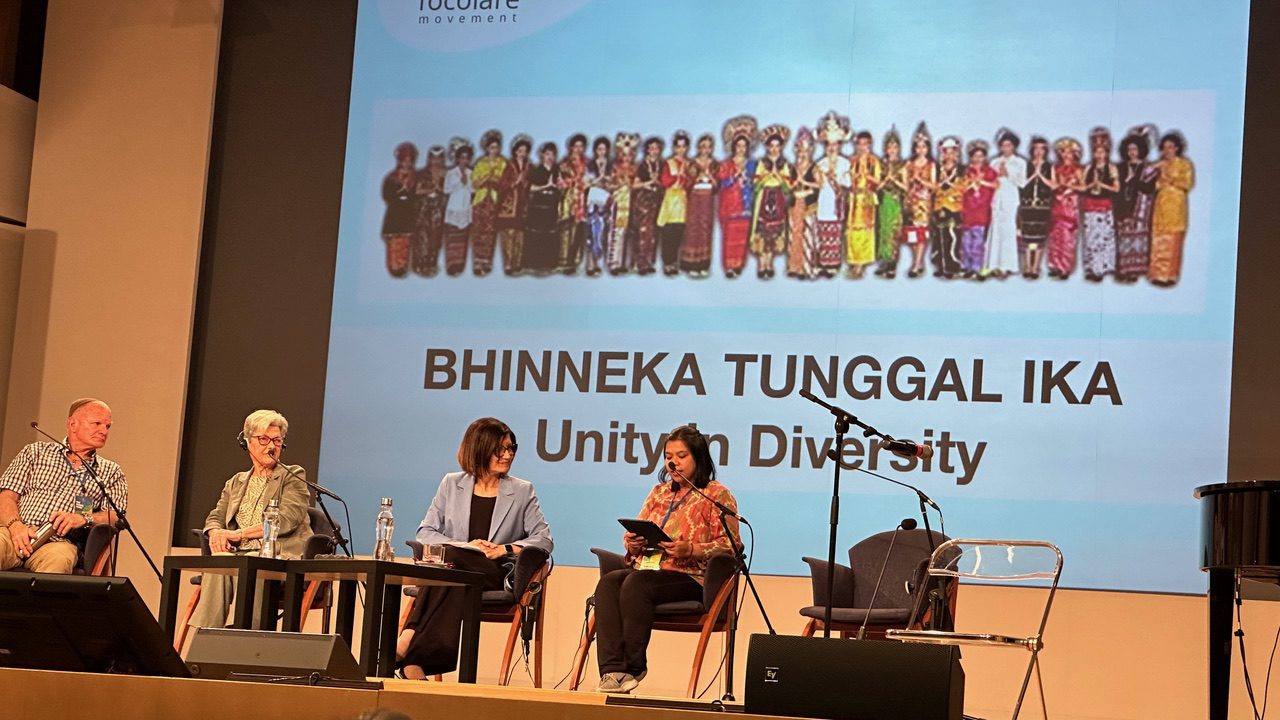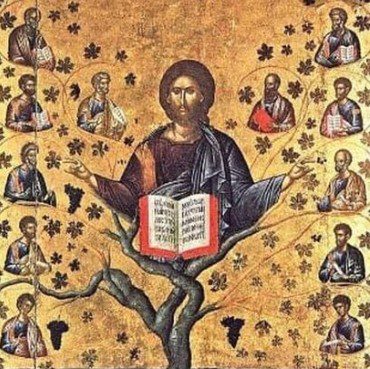By Martin Hoegger. www.hoegger.org
One of the strengths of the Focolare Movement is to combine the theoretical aspect of the themes addressed with practical testimonies. As part of the recent interreligious conference organized by this Movement with vast horizons, six actors from different religions testified to their commitments, after five economists presented their thoughts. (see https://european.express/2024/06/an-economy-for-peace/ )
The Indonesian Lawrence Chong, from Singapore, member of the Dicastery for Interreligious Dialogue of the Vatican, testifies to his journey in this dialogue and with the Focolare movement. He also had the opportunity to participate in “Religions for Peace” meetings, of which he was the moderator for Asia, as a young leader.
The encounter with the Shanti Ashram changed his life, as well as with the Japanese Risshō Buddhist movement. Kosei Kai. According to him, young people will not advance if we do not give them the opportunity to become leaders. Chiara Lubich inspired him by creating new structures for dialogue. Words are in vain if they do not lead to action and to considering others on an equal level. Fraternity will not happen if we do not change the economy, Pope Francis told him. To do this, we must combat the selfishness that is structural in the current economic system.
He founded a company with a Protestant and a Muslim. What he experienced in Singapore, he also did in other countries. It is possible to carry out projects in other contexts, such as the construction of a new village in Malaysia, called “paradise” (Sarawak), where the economy of communion is practiced.
Live friendship with everyone
Hayat Zitouni recalls the history of the Focolare movement in Algeria, from 1964. A small group of four people started a community with a single goal: to live friendship with everyone, in a country that is more than 99% Muslim. The experience becomes popular among Muslims. The summer meetings (called “Mariapoli ”) even have to refuse people because they are so many. The Imam of Tlemcen then became a great friend of Chiara Lubich and the Focolare.
For her, the dialogue of life is a daily experience that pushes us towards others. During the beatification ceremony of the monks of Thibirine, the Focolare contributed to the smooth running of this important event for the Church of Algeria. But it is above all through charitable actions that the movement works. Through the Focolare, she also had a more positive perception of the Jewish people.
“The Dice of Love”
Santi Wongyai , from Thailand, is a musician and teaches art to very poor Burmese migrant children. He also gives them Thai lessons so that they can integrate. But their parents preferred to make them work in the sugar cane fields.
In the province of Chiangmai, he teaches children who come to the Buddhist temple the “Dice of love”. This charismatic figure takes his guitar and sings a song he composed on this theme.
Empowering children
Vijay Gopal, from India, belongs to Shanti Ashram, and is committed to underprivileged children. Ending child poverty builds a peaceful world. For this, we must give them priority for their well-being. More than 140 thousand young volunteers are involved and come from various social strata and religious traditions.
The approach focuses on children’s leadership. Children play a key role from the start. We respect them, include them and make them responsible. The Focolare collaborated on this programme and made it more operational. In 2024, this programme carried out in sixteen states of India will be replicated in ten others.
A young member of this great movement then testifies that he started working on this project at the age of 15, taking care of a very poor family. “It had a huge impact on my career and helped me understand myself better,” he says. Volunteering plays a key role in fostering inclusion and social resilience. We can overcome poverty…but together.”
Alongside the homeless
Harvey Livschitz is from New Zealand and is involved in the Wellington Interfaith Council. He discovered Focolare during confinement at the time of covid-19. In collaboration with a pastor, he took care of the homeless, through sales of food, belts and jewelry, as well as objects made from recycled objects. “The goal of this action is not only to generate profit, but above all to bring a smile to the faces of people who regain dignity,” he said.
“Dare to care”
Indonesian Sri Safitri Oktaviyanti is involved in “Dare to Care”, a Focolare diaconal programme. Indonesia is made up of 17,000 islands with more than 200 million people, predominantly Muslim. The country’s motto is “unity in diversity”.
This programme wants to take care of the poor, through the distribution of meals and other charitable actions, especially for the homeless and children from disadvantaged families. In a context where ecology is only in its infancy, Dare to Care also takes care of the environment, in order to put into practice the indications of the encyclical “Laudato Si ” on integral ecology, with actions such as cleaning beaches or planting trees.
The third point of attention is the care of the marginalized, such as the elderly, orphans and the disabled. Another point is meeting religious minorities, inviting them to common meals.
Other articles on this conference: https://www.hoegger.org/article/one-human-family/





